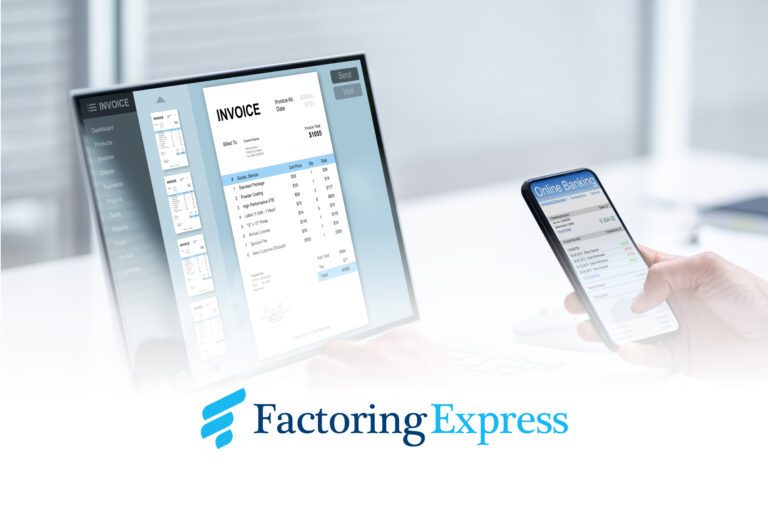The staffing industry is a dynamic sector where payment terms and cash flow challenges are prevalent. In this case, invoice factoring emerges as a powerful financial tool. It is imperative to provide a panoramic view of how staffing firms leverage factoring to navigate the flow of cash.
As a result, operational continuity and growth can be promoted. This comprehensive guide will provide a deep insight into the basics of invoice factoring in the staffing industry.
Understanding the Basics
Delving into the foundations of Invoice Factoring unveils key concepts that underpin its functionality. This provides a comprehensive understanding of how this financial strategy operates within the context of staffing companies.
Key Concepts in Invoice Factoring
Invoice Factoring is a financial practice with notable implications. It involves several key concepts essential for a comprehensive understanding of its mechanics. This section explains these fundamental concepts.
- Factor: This is a financial institution responsible for purchasing accounts receivable from businesses. Factors play a pivotal role in advancing immediate cash against outstanding invoices.
- Accounts Receivable: The amount of money owed to a business by its clients for goods or services provided on credit. In terms of factoring, accounts receivable serve as the basis for the transaction.
- Advance Rates: The percentage of the invoice amount that the factor advances to the business upfront. This rate varies and is influenced by certain factors. These include industry, creditworthiness, and the terms of the factoring agreement.
- Factoring Fees: The charges levied by the factor for their services. These fees typically encompass a discount or fee percentage. It is deducted from the total invoice amount.
- Recourse vs. Non-Recourse Factoring: Recourse factoring involves the business retaining the responsibility for bad debt. However, non-recourse factoring implies that the factor assumes the risk of non-payment. The distinction has implications for the cost and risk-sharing dynamics of the factoring relationship.
- Notification vs. Non-Notification Factoring: Notification factoring involves the factor communicating directly with the business’s customers. It informs them of the factoring arrangement. Non-notification factoring keeps the business in control of customer communication.
- Factoring Agreement: This is a contractual arrangement between the business and the factor. It outlines the terms, conditions, and fees associated with the factoring relationship. This agreement governs the rights and obligations of each party.
- Due Diligence: The process through which the factor assesses the creditworthiness of the business’s customers. They do so before agreeing to purchase their invoices. This step is crucial in managing risk in the factoring arrangement.
Significance of Invoice Factoring for Staffing Companies
Invoice Factoring holds profound significance for staffing companies. After all, it addresses specific challenges and provides tailored solutions that are in line with the staffing industry. The importance of Invoice Factoring in this context can be explored through several key functions
- Immediate Cash Flow: Staffing companies often face irregular cash flows due to the nature of their business. During this period, they may have to meet payroll obligations before receiving payment from clients. Invoice Factoring provides an immediate injection of cash. It does so by converting outstanding invoices into working capital. This promotes the timely payment of employees.
- Mitigating Payment Delays: Extended payment terms are common in the staffing industry. This results in delays in receiving funds. Factoring accelerates cash collection and reduces the impact of prolonged payment cycles. For this reason, staffing firms can meet financial obligations without disruptions.
- Flexible Financing for Growth: Staffing companies frequently experience fluctuations in demand. This requires flexibility in financial arrangements. Invoice Factoring offers a dynamic solution that involves financing being tied to the volume of invoices. This benefit offers scalability to accommodate growth without the constraints of traditional loans.
- Streamlined Operations: Factoring allows staffing companies to focus on their core operations. They do so by outsourcing the management of accounts receivable. This streamlined approach reduces the administrative burden associated with chasing payments. This ensures that the staff can concentrate on strategic business activities.
- Risk Mitigation: The staffing industry is susceptible to client credit risks and potential bad debts. Factoring companies often conduct due diligence on the creditworthiness of clients. This provides a layer of risk mitigation. Non-recourse factoring can also provide protection against client insolvencies.
- Enhanced Competitiveness: Access to immediate cash through factoring empowers staffing companies to seize new opportunities. It also allows them to bid on larger contracts, and compete more effectively in the market. The financial flexibility afforded by factoring contributes to the agility needed in the fast-paced staffing industry.
- Maintaining Customer Relationships: The non-notification option in factoring allows staffing companies to maintain control over communication with clients. This preserves the existing customer relationships. It also avoids potential complications that may arise when a third party notifies clients of the factoring arrangement.
What is Payroll Funding?
Payroll funding is also referred to as payroll financing or payroll factoring. This financial solution is designed to address the cash flow challenges businesses face in meeting their payroll obligations. This specialized form of financing involves leveraging outstanding invoices, which are often referred to as payroll invoices. This helps to secure immediate funds for covering employee wages.
The key components of payroll funding are provided as follows:
- Payroll Funding Companies: These financial entities specialize in providing payroll funding services. Payroll funding companies are also known as payroll factoring companies. They work with businesses to advance funds based on their outstanding payroll invoices.
- Payroll Factoring: Payroll factoring involves the sale of outstanding payroll invoices to a financing company at a discounted rate. This allows businesses to access a portion of the funds tied up in unpaid invoices. It addresses immediate cash flow needs.
- Payroll Invoice: A payroll invoice is a documented record of services rendered or work completed by employees. This invoice serves as the basis for payroll funding. Businesses submit these invoices to payroll funding companies to secure advances.
- Payroll Fund: This is a pool of funds generated through payroll funding. These funds provide businesses with the liquidity needed to meet payroll obligations on time. It ensures that employees are paid promptly.
How does payroll funding work?
The following steps are essential to note:
- Submission of Payroll Invoices: Businesses submit their payroll invoices. This reflects completed work or services provided to a payroll funding company.
- Advance of Funds: The payroll funding company advances a significant percentage of the total payroll invoice amount to the business. This advance provides immediate cash to cover payroll expenses.
- Client Payment and Deductions: When clients pay the invoices, the payroll funding company deducts its fees and the advance provided. The remaining amount is then remitted to the business.
Furthermore, the benefits of payroll funding are explained as follows:
- Immediate Cash Flow: Businesses gain immediate access to cash. This ensures timely payroll processing even before clients make payments on outstanding invoices.
- Risk Mitigation: Some payroll funding arrangements transfer the credit risk to the payroll funding company. This is especially true for those involving non-recourse financing. They protect businesses from potential client defaults.
- Flexible Financing: Payroll funding is flexible and scalable. This allows businesses to adjust financing based on their specific needs and the volume of outstanding payroll invoices.
Payroll funding is a strategic financial tool that empowers businesses. This is particularly true for those in industries with cash flow challenges. This allows them to maintain operational stability by ensuring consistent and timely payroll disbursements. Payroll funding companies play a pivotal role in facilitating this process. They support businesses in managing their financial responsibilities effectively.
Comparisons with Other Financing Options: Staffing Factoring vs. Traditional Loans
This section compares Staffing factoring with traditional loans.
Staffing Factoring:
Staffing factoring is a specialized form of financing. It involves selling accounts receivable (invoices) to a factoring company at a discounted rate to access immediate cash. This approach is relevant for staffing companies facing challenges associated with extended payment terms and fluctuating cash flows.
Pros:
- Immediate Cash Flow: Staffing factoring provides quick access to cash. This is crucial for meeting payroll and operational needs.
- Flexibility: Financing is directly tied to the volume of invoices. It makes it scalable to accommodate growth.
- Risk Mitigation: Depending on the terms, staffing factoring can offer non-recourse financing. This approach mitigates the risk of bad debts.
Cons:
- Cost: Factoring fees may be higher than traditional loan interest rates.
- Client Notification: In some cases, clients may be notified of the factoring arrangement. This could impact the business relationship.
Traditional Loans:
Traditional loans involve borrowing a lump sum from a financial institution. The business is required to repay the loan amount along with interest over a specified period. This is a conventional financing option that staffing companies may consider for various purposes.
Pros:
- Predictable Repayment: Monthly installments provide a structured and predictable repayment schedule.
- Ownership Retention: The business retains ownership and control. This is done without involving external parties in receivables management.
Cons:
- Approval Challenges: Securing a traditional loan may be challenging. This is especially true for small or new businesses without a robust credit history.
- Time-Consuming: The loan application and approval process can be time-consuming. This causes delays in accessing funds.
The choice between staffing factoring and traditional loans hinges on the specific needs and priorities of a staffing company. Factoring provides agility and immediate cash flow. However, traditional loans offer structured repayment and ownership retention. Businesses must carefully assess their financial goals and operational requirements. This helps them determine the most suitable financing option for their unique circumstances.




